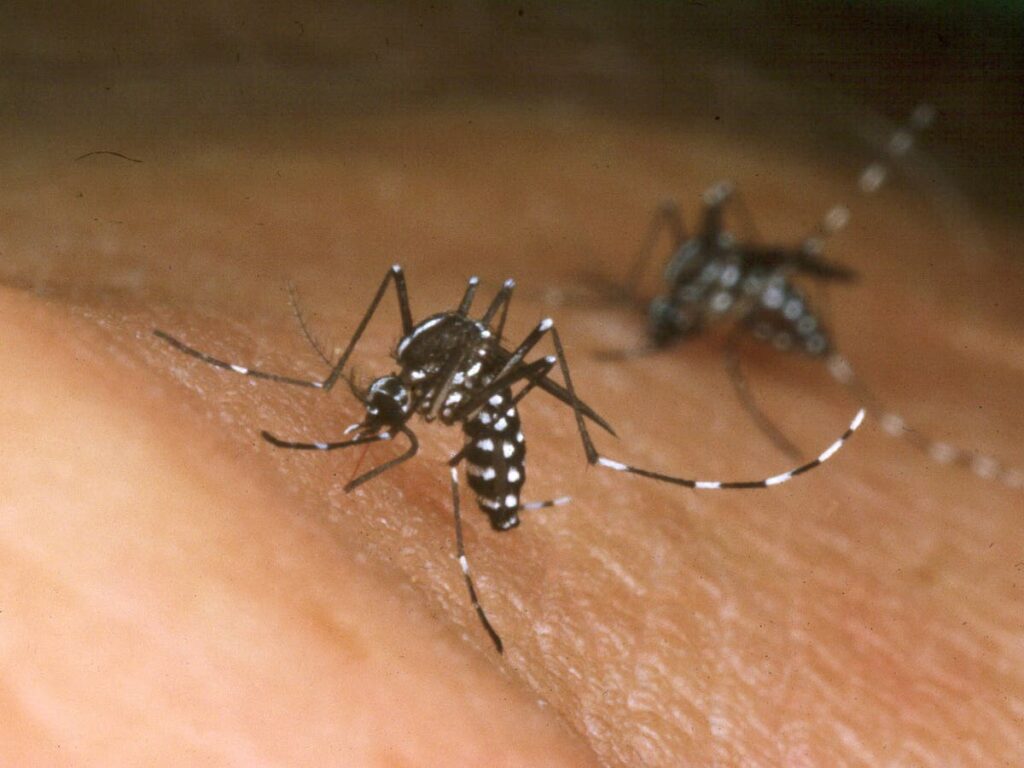A boy covers his mouth as a Sri Lankan health worker fumigates insecticide to curb mosquito breeding in an attempt to control dengue fever in Colombo, Sri Lanka (EPA)
Ms Ammon advises that people take “personal protective measures”, adding that “early detection of cases, timely surveillance, further research and awareness-raising activities are paramount in those areas in Europe most at risk”.
The rise in dengue cases is not the only concern. Experts warn that conditions might also lead to an increase in malaria incidents in the future.
Scientific data shows that Europe is the fastest warming continent. The lack of investment in healthcare systems to manage tropical diseases, which were once rare but are now becoming more widespread in Europe, could have serious consequences.
Last year, the UN health agency’s dengue chief Dr Raman Velayudhan warned of a “really worrying” expansion of the virus’s global spread in 2022 – in which the climate crisis has “played a key role”.
The tiger mosquito has also been detected by authorities in the UK on multiple occasions since 2016, in England’s southeast.
According to one 2019 study published in the Journal of the Royal Society Interface, these mosquitoes could become established across nearly all of England and Wales by the 2060s.
There are concerns that incidents of malaria could also spike on the continent in the future, if conditions are right.
According to the WHO, between 100-400 million people globally are infected with dengue annually, with about 100 million becoming ill and 21,000 succumbing to the disease.
The rise in dengue cases is a global phenomenon. The number of locally transmitted cases has been increasing in the USA, Italy, and France, with Spain recording its first cases in many years. In 2022, the American continent registered 2.8 million cases of dengue, more than double the 1.2 million cases in 2021.
Source link : https://www.independent.co.uk/climate-change/news/tiger-mosquitoes-dengue-fever-symptoms-b2561797.html
Author :
Publish date : 2024-06-13 07:56:52
Copyright for syndicated content belongs to the linked Source.
